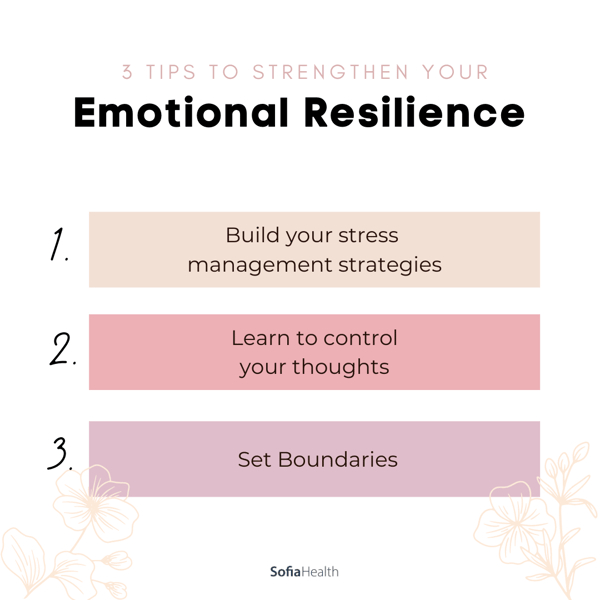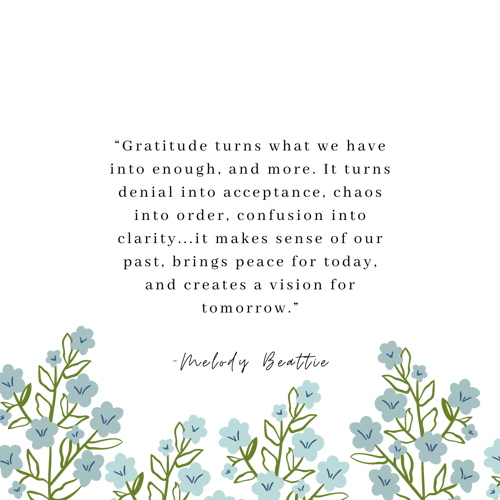In the year 2020, we were faced with an unprecedented number of new challenges and stressors. These challenges tested our emotional resilience and forced us all to take a step back and recognize the importance of protecting our mental health and well-being.
Table of Contents
What is Emotional Resilience?
Emotional resilience refers to our ability to 'bounce back' emotionally following a stressful situation. When we experience stress, especially for prolonged periods of time, we can become overwhelmed with negative emotions. As witnessed over the past year, this can lead to increased feelings of anxiety and depression which can have profoundly harmful impacts on our mental well-being.
The concept of emotional resilience refers to one's ability to handle stress and 'bounce back'.
Traits Can be Learned.
Fortunately, emotional resilience is a trait that can be developed and strengthened. Building our emotional resilience skill set will help us adapt to stressful situations, overcome past and present trauma, and cope with the challenges we face on a daily basis.
There are many different types of health and wellness professionals who can help you develop strategies to build resilience, and in turn, improve your response to difficult situations. Developing strong emotional resilience takes effort, but with time and practice, you will begin to notice a shift in your mental and emotional capacity to cope with past and present challenges.
Dr. Harry Barry, a General Practitioner and author of numerous books addressing various aspects of mental health, stated that emotional resilience can be developed by:
- Recognizing the fact that our thoughts influence our actions.
- Acknowledging stress and being willing to effectively cope with it.
- Being open to changes while adapting to new situations.
- Accepting the truth that by changing the way we react to stress, a lot of differences can be made.
Embracing the self by building self-compassion and empathy

We understand that developing effective coping strategies can be challenging. Here are 3 tangible ways to help you strengthen your emotional resilience.
1. Build your stress management strategies
The concept of emotional resilience refers to one's ability to handle stress and bounce back to your normal emotional state. So how we cope with stress directly impacts our resilience.
One technique you can implement is called the 4 A's of Stress Management: Avoid, Alter, Accept, and Adapt. To learn more about the 4 A's, visit the Care Connection from AANAC.
2. Learn to control your thoughts
Easier said than done, we know! Techniques such as speaking positive affirmations, practicing gratitude, and meditation can help quiet your mind. This will make it easier for you to process stressors and appropriately cope.

The National Institutes of Health (NIH) released a study in which 'meditation was shown to exert positive psychological and physiological effects on stress, resilience and self-awareness and acknowledged as a promising adjunctive treatment in a broad range of psychiatric patients'.
3. Set boundaries
Boundaries are guidelines that we set for ourselves. Physical boundaries, such as a fence or guardrail, are easy to see. Emotional boundaries, on the other hand, can be elusive. Learning how to establish and communicate your emotional boundaries is a necessary step in protecting your emotional well-being and building your resilience.
There is a multitude of resources available to help you set your own emotional boundaries. Here is a video from Sofia's Health Coach and Counseling Practitioner, Lauren Dyche.
Seeking Help
If you are struggling to overcome past or present trauma, are seeking guidance in setting personal boundaries, or wish to learn and implement coping strategies that can foster greater resilience in the face of life's challenges, reach out to any number of our qualified practitioners, on SofiaHealth.com.
Resources:
- Rubia, 2009; van der Velden and Roepstorff, 2015. The Immediate and Sustained Positive Effects of Meditation on Resilience Are Mediated by Changes in the Resting Brain. Ncbi.nlm.nih.gov
- Dr. Harry Barry. ‘Emotional Resilience: How To Safeguard Your Mental Health
- Warwick Wellbeing Support Services.



.png)

.png)

